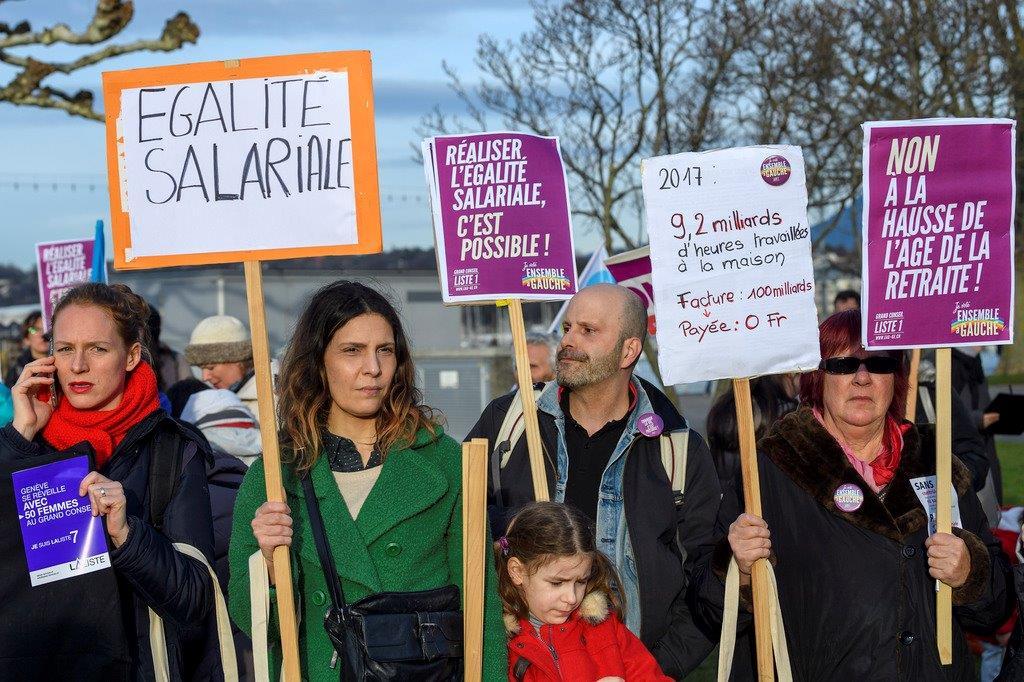More working hours for women? Easier said than done

Encouraging women to increase their working hours could be one answer to tackling looming labour shortages in Switzerland. Currently, six out of ten women in the country work part-time – one of the highest rates in Europe.
Over the next decade, nearly a million people will retire in Switzerland, while just 500,000 will enter the workforce, according to estimates by the Swiss Employers’ Union.
The union’s president, Valentin Vogt, is lobbying for women in the workforce to increase their hours by more than 60%. “The issue is not to create new part-time jobs, but to ensure that working women increase their percentage,” he said in a recent interview with several German-language newspapers.
While Switzerland is a country where the proportion of women in employment (more than 80%) is among the highest in Europe, it is also at the top of the ranking in terms of women employed part-time, just behind the Netherlands.
+ How work responsibilities have shifted for women and men over the years
It’s common for women to work from a day and a half to three days a week, with mothers of school-age children often at the lower end. The situation is partly made possible thanks to high salaries, but it’s also a direct response to the challenge of reconciling work with family commitments; in many parts of the country, schoolchildren are expected to go home for lunch.
“Despite changes in recent years, childcare facilities are often still too scarce and too expensive. For many mothers, it doesn’t always add up financially to work more hours,” says Irenka Krone-Germann, director of the Part-Time OptimisationExternal link association and co-founder of We Jobshare.
New approaches needed
At the same time, the gap between men and women working part-time is one of the widest in the world. “Switzerland is an extremely conservative country in terms of sharing responsibilities,” says Krone-Germann.
Although more and more men (17.5%) opt for part-time work, childcare is often not the main reason. “They do so primarily for training or to have time for their hobbies. They reduce their workload by 20%. Family reasons are secondary, while these are the main reasons for a large majority of women,” she says.
+ Where does Switzerland stand generally on gender equality?
A study by the Federal Statistical Office published this summer showed that the number of men working part-time actually fell with the arrival of a child.
Gender inequalities are such that, in The Economist’s view, the Swiss labour market is one of the most discriminatory in Europe. The “glass-ceiling indexExternal link” published at the beginning of the year by the magazine put Switzerland in 26th place out of 29 countries in the ranking of gender equality in the labour market.
Of the ten criteria used in the index, Switzerland rated very poorly with regard to the cost of childcare and the length of maternity and paternity leave. The low proportion of women on corporate boards and the gender gap in access to higher education also knocked Switzerland down the ranking.
The findings support Krone-Germann’s argument for new and innovative forms of work within companies, such as job-sharing. It’s not enough just to tell women to work more, she insists.
“Companies should offer their employees, both women and men, the opportunity to pursue a career while working part-time. Job-sharing is an excellent way to keep talent on the job market,” she concludes.

More
Workplace gender gap fuels Switzerland’s plunge in global index

In compliance with the JTI standards
More: SWI swissinfo.ch certified by the Journalism Trust Initiative













You can find an overview of ongoing debates with our journalists here . Please join us!
If you want to start a conversation about a topic raised in this article or want to report factual errors, email us at english@swissinfo.ch.